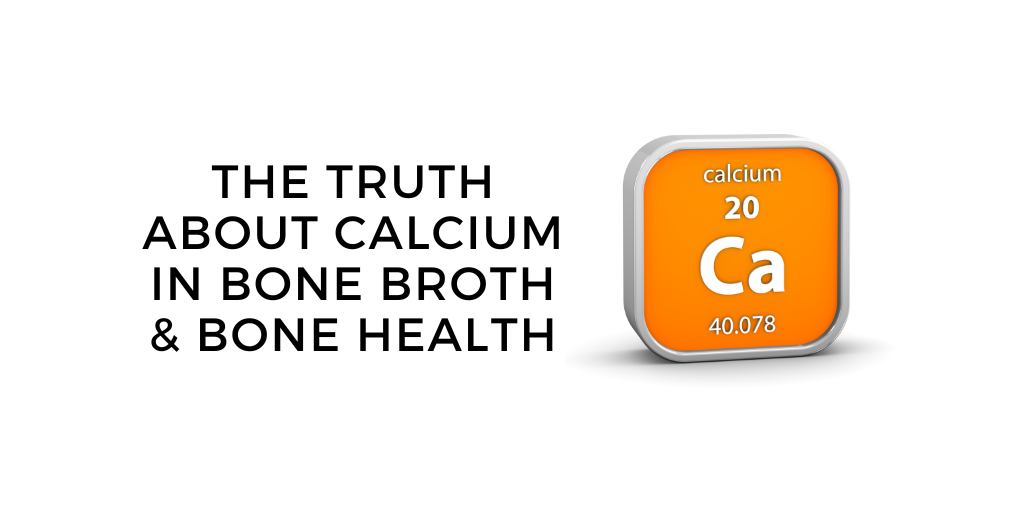
Does Bone Broth Have Calcium: Bone Health & Osteoporosis Benefits
Guide to Calcium in Bone Broth
Bone broth can be a great way to treat osteoporosis and arthritis joint pain. But the problem is, you have no idea how much calcium is in it or what other nutrients are helping.
There are many different types of bone broth on Amazon with varying amounts of calcium. They also have confusing statements on other benefits like digestion support and weight loss, etc.
But do they actually work?
This guide will tell you exactly how much calcium there's in bone broth and what other nutrients help strengthen your bones and reduce joint pain.
One quick thing before we get started. As you'll read below, my top choice for a healing bone broth is the chicken bone broth powder from Bluebird Provisions.
It is full of joint and bone healing compounds like glucosamine, glycine, chondroitin and collagen.

What is Bone Broth: Stock or Soup?
Bone broth is a healthy and easy-to-prepare liquid snack. Historically, it has been used in soups and stocks as a way to use all parts of the animal.
Nowadays, we use it for its unique proteins and nutritional benefits, including joint pain and bone health. But it is not all about the calcium in this nourishing beverage. There is so much more to it that we will discuss below.
The Problem
North Americans do not get enough nutrients to support optimal bone health. We have an aging population with higher rates of osteoporosis, joint pain and arthritis.
Bones are made up of 60% minerals like calcium, magnesium, phosphorus and potassium. For this reason, many experts recommend drinking bone broth to those who are suffering from bone issues.
Historically, it has been overlooked because it wasn't marketed as a "healthy" food item despite its many benefits to our bones. Most people were told to drink milk.
The tricky part about calcium is its absorption. It is difficult to absorb through foods alone. You need extra, bioavailable nutrients to maximize its benefits. This is where bone broth truly shines.
Calcium in Bone Broth: How Much
Calcium levels in bone broth range from 1.5 mg to 55 mg per 240 ml or 1 cup serving size. This works out to 1.5% to 3.75% of the recommended daily intake in the USA (1,2).
This is probably lower than you expected. It is actually a hoax that bone broth is rich in calcium.
Blogs, so-called 'experts' and internet marketers tout the claims that it is full of calcium. But it is simply not true.
Depending on the animal used, you can get up to 55 mg calcium per cup, but that is with deer or venison bones.
However, with beef or chicken bones the number is lower at 10-20 mg.

Why doesn't bone broth have more calcium?
Bone broth doesn't have more calcium because bones are complex, the minerals may be in the sediment that gets strained out and there are molecule interactions that prohibit the breakdown.
Bones are 60% calcium, so it is a bit confusing that it does not cook into the broth. What gives?
Bone broth is a complex thing on a molecular level. The reality is that we do not know exactly what is going on when it is being boiled (3).
Just because you are breaking down the physical structure of bones using heat and water, it does not mean that the contents of the bones are ending up in the liquid.
I know some people say that adding vinegar helps extract nutrients, I've written at length about the apple cider vinegar myth in broth.
Research tells us that vinegar has zero effect on nutrient uptake unless you are using industrial strength acids.
So this leaves me with two ideas as to where the calcium / minerals go. Because they sure as hell aren't in the liquid we are testing in the lab.
- The calcium is reacting with certain proteins or other structures which precipitates it out of the final liquid.
- Calcium is not actually being ;released' from the bones and other tissues. Sure, the bones are physically breaking down, but only into smaller particles that sink to the bottom of the pot.
- These particles never get small enough to dissolve in the broth. In layman's terms, the sediments in the bottom of your pot when you make it hold all of the minerals.
So what we are left with is an overhyped source of calcium that in reality, has around 2% of your daily recommended intake (5).
BUT that does not mean it is not the best beverage or food to help with bone health and joint pain. It has too many other beneficial compounds to be ignored.
Bone Broth Benefits for Bone Health and Arthritis
Bone broth benefits for bone health include building cartilage, reducing inflammation, helping you sleep, weight loss and liver detox benefits.
Let's go through each below.
1. Building Cartilage For Healthier Joints
Bone broth has cartilage building compounds like gelatin, glucosamine and chondroitin for healthier joints.
The natural gelatin in it (10 g per cup) helps to increase collagen levels in your knees, hips, hands, neck, back and feet. This helps hydrate them and builds new tissue over time.
One study even found that the connective tissue found in chicken bones (type 2 collagen) helps to reduce pain and inflammation associated with osteoarthritis pain in knees. You have to drink it for 2 months or so in order to see the full effects. So be patient.
I used it to heal a stress fracture in my ankle / foot joint. It took some time but eventually I felt way better!

2. Reduce Inflammation For Gut Health
Your gut is the first line of defence for chronic inflammation. When things start to go back in your GI tact, your body is more likely to have a strong immune response that can lead to autoimmune conditions.
If you gut gets inflamed over a period of months or years, you may develop leaky gut syndrome which leads to further complications. Leaky gut is a real condition and can lead to inflammation and a strong immune response fo conditions like IBD, IBS, Crohn's Disease or Ulcerative Colitis.
Bone broth has the perfect blend of amino acids to treat leaky gut and colitis by reducing inflammation where you need it most.
These nutrients include collagen, gelatin, glycine and glutamine, which have all been shown to soothe gut irritation and inflammation.
Learn all the details about bone broth for gut health in this article.
It can also strengthen the gut barrier and reduce the presence of bad bacteria from food entering your bloodstream.
3. Fight And Reduce Osteoarthritis Symptoms
Bone broth may help fight osteoarthritis by providing compounds which maintain joint health.
As I mentioned above, glucosamine and chondroitin are part of the regular treatment regime for treating osteoarthritis.
Dinking it daily is the easiest way to get the same beneficial compounds delivered to the body as if you were eating chicken cartilage yourself.
It has more of these two healing compounds that any other whole food.
It gets delivered to your joints to help improve symptoms of osteoarthritis, such as pain, stiffness and impaired physical function.
Finally, calcium helps fight osteoarthritis by increasing the levels in your body.
4. May Aid Sleep
Drinking bone broth one hour before bed can help to improve sleep by reducing nervous system activity and putting you into a deep state of relaxation.
You core body temperature decreases and you slip into deeper, more restorative phases of sleep throughout the night.
This is thanks to a unique amino acid called glycine, which is used for treating sleep issues and also mental health issues like schizophrenia.
5. May Make it Easier To Lose Weight
I don't like weighing into this realm of discussion, so I will keep it as objective as possible. Bone broth can help people lose weight because of what's in it.
It is low calorie and virtually all protein -- especially if you are drinking a high quality version like Bluebird Provisions, which you can find on Amazon.
Not only that, the type of protein is gelatin, which, in studies, is shown to increase satiety and make people feel fuller for longer than other foods.
When you feel full and satisfied, you eat less calories throughout the day. Losing bodyweight is sometimes a way to ease the burden on your bones and joints. But not always.
Be sure to speak to your doctor to see if it is right for you. And you can learn more about bone broth for weight loss if you're interested.
I'm not here to say you need to lose weight or should drink it to do so. I would always recommend you find a way to be happy in the body you are in, rather than constantly try to make it look better through diet.
Diet's do not work in the long term.
6. Liver Detoxifying Benefits
Glycine in bone broth helps to keep your liver strong and allows it to naturally detoxify itself. Glycine acts as a buffer to help increase antioxidant status in your cells as well.
It does this by working with glutathione, the master antioxidant, to heal and remove damaged cells.
By detoxing your body, you may reduce inflammation around your bones and joints to improve joint pain symptoms.
Is bone broth good for osteoporosis?
Bone broth is good for osteoporosis because it is full of protein and amino acids. These are needed to make new collagen, which is a huge part of healthy bones.
It also has micronutrients (potassium, magnesium, glucosamine and hyaluronic acid) that help to reduce the loss of bone mass and reduce fractures as you age.
It can help with weight loss, which may help keep your bones strong if you have less weight to move around.
Finally, bone broth has many anti-inflammatory properties, which may help with osteoporosis symptoms.
Looking for bone broth? Read my bone broth review which ranks the top brands.

Minerals in Bone Broth Explained
Minerals in bone broth are calcium, magnesium, potassium, collagen, glucosamine, glutamine, chondroitin, hyaluronic acid and phosphorus.
Minerals play an important role in keeping your joints and bones strong and resilient to stress.
1. Collagen and Gelatin
Collagen is essential for our health. It provides the foundation for connective tissue, ligaments, skin, joints and bones.
You can think of collagen and gelatin as the same. They share the same amino acid profile. The only difference is that collagen turns to gelatin when cooked.
Gelatin, in particular, helps us to digest and break down food by stimulating gastric juiced and digestive enzymes in your stomach.
It is also full of glutamic acid, which helps maintain a healthy mucosal lining in our stomach. This reduces leaky gut issues.
These two proteins have 19 amino acids, many of which we do not get enough of in our typical 'Western' diet.
This is why bone broth is so important. It is the highest natural source in the world.
2 . Phosphorus
Phosphorus is a mineral found in bone broth that are cooked for a long time. The longer the cooking time, the more phosphorus is concentrated in the broth.
It is crucial to bone health because it helps to increase levels of copper.
Phosphorus is important for bone health and may help to boost copper levels in the broth. You get slightly more of it in broth made with pork bones than in beef.
3. Potassium
Potassium in an electrolyte that works together with sodium to maintain proper fluid balance in your cells.
It is incredibly important for stable energy levels, nervous system activity, heartbeats and muscle movements.
Without it you get dehydrated, lose energy and feel awful. Most Americans fall short of the recommended daily intake.
Chicken bone broth has up to 400 mg potassium per cup. That is more than a banana!
4. Magnesium
Magnesium helps us turn food and calories into energy that make our muscles move. It is crucial to the formation of protein in our body, maintaining our nervous system health and bone health.
It works together with calcium to maintain healthy bones.
Bone broth has magnesium, but it must be simmered 'low and slow,' for a long time in order for the magnesium levels to grow.
5. Chondroitin
Chondroitin sulfate is a nutrient that is crucial in building strength in our joints, tendons, ligaments and cartilage. This includes areas in our heart and blood vessels.
Levels in our body are constantly breaking down and re-forming through synthesis. When it breaks down too much but doesn't get a chance to reform properly, we get joint deterioration which can lead to osteoarthritis.
Bone broth gives you the building blocks for proteoglycan synthesis. This reduces joint breakdown and can improve joint and bone health as a preventative measure.
6. Glucosamine
Glucosamine and hyaluronic acid (see below) are glycosaminoglycans (GAGs) that are crucial components of cartilage in our joints.
Glycosaminoglycans attract water to your joints, hydrating them and giving them shock absorbing capabilities. This also helps to lubricate your cartilage to protect your joints, tendons and ligaments.
GAGs are needed to make synovial fluid, the lube for your joints. Without synovial fluid, your joints would be stiff and difficult to move
7. Hyaluronic Acid
Much like glucosamine, hyaluronic acid is an important component of cartilage and skin health. It attracts a lot of water to help build up synovial fluid in your skin, tendons and ligaments.
The dermis layer of your skin is made up of hyaluronic acid and glucosamine. They literally provide the structure of it, along with collagen.
It is not surprise that is helps with skin growth to reduce wrinkles and improve hydration and elasticity for more supple skin.

Which bone broth has the most calcium?
Pheasant, elk or deer bone broth has the most calcium compared to beef, pork or chicken. It will have up to 60 mg per cup where as the others have between 5-20 mg. It is still not a huge amount or overall difference.
Does bone marrow have calcium?
Bone marrow is full of nutrients and minerals but does not have a lot of calcium. For example, a 0.5-ounce serving contains 12.62 milligrams of calcium, which about 1 percent of your daily value.
Is homemade bone broth high in calcium?
Homemade bone broth will not be high in calcium because of the limitations of these cooking techniques. You are not able to properly extract the calcium from bones because it is a highly complex process, and the calcium interacts with proteins in the liquid.
Also, some of the bones that are broken down simply end up as sediments in the bottom of your pot. This is likely where all the calcium is. So if you risk eating these sediments, you may get more minerals, but I do not recommend it because there are bone fragments.
Why is broth a better choice than a supplement?
Broth is a better choice than a supplement when it comes to calcium intake because food contains other nutrients which help absorption and provide their own nutritional benefit.
Broth is packed with minerals such as magnesium, iron, phosphorus, potassium, and zinc. These are needed in their natural amounts in order to help with calcium absorption.
Also, collagen is in its most bioavailable form when it's in liquid, which helps it be absorbed better in your bones, joints and skin.
Closing Thoughts
If you're looking for an easy way to improve your bone health, bone broth is a great option. It's packed with nutrients like collagen, glucosamine, chondroitin and glycine that can help improve bone density and joint health.
While the amount of calcium in it is overblown, it is still fantastic for your bone health and joint pain because of the other nutrients.
The best one I've found is made by Bluebird Provisions. They are available on Amazon Prime or on their website. So why not give it a try?
Have you tried using it? How did it work for you? Leave a comment and let me know.
Disclaimer: this information is for educational purposes only and has not been evaluated by the FDA or CFIA. It is not intended to diagnose, treat, cure, or prevent any disease. Please consult your primary care physician for advise on any of this.
Sources:
(1) https://pubmed.ncbi.nlm.nih.gov/2592713/
(2) http://www.ncbi.nlm.nih.gov/pmc/articles/PMC1975347/
(3) http://jn.nutrition.org/content/7/5/535.full.pdf
(4) http://www.ncbi.nlm.nih.gov/pubmed/8082052
(5) https://www.ncbi.nlm.nih.gov/pmc/articles/PMC5533136

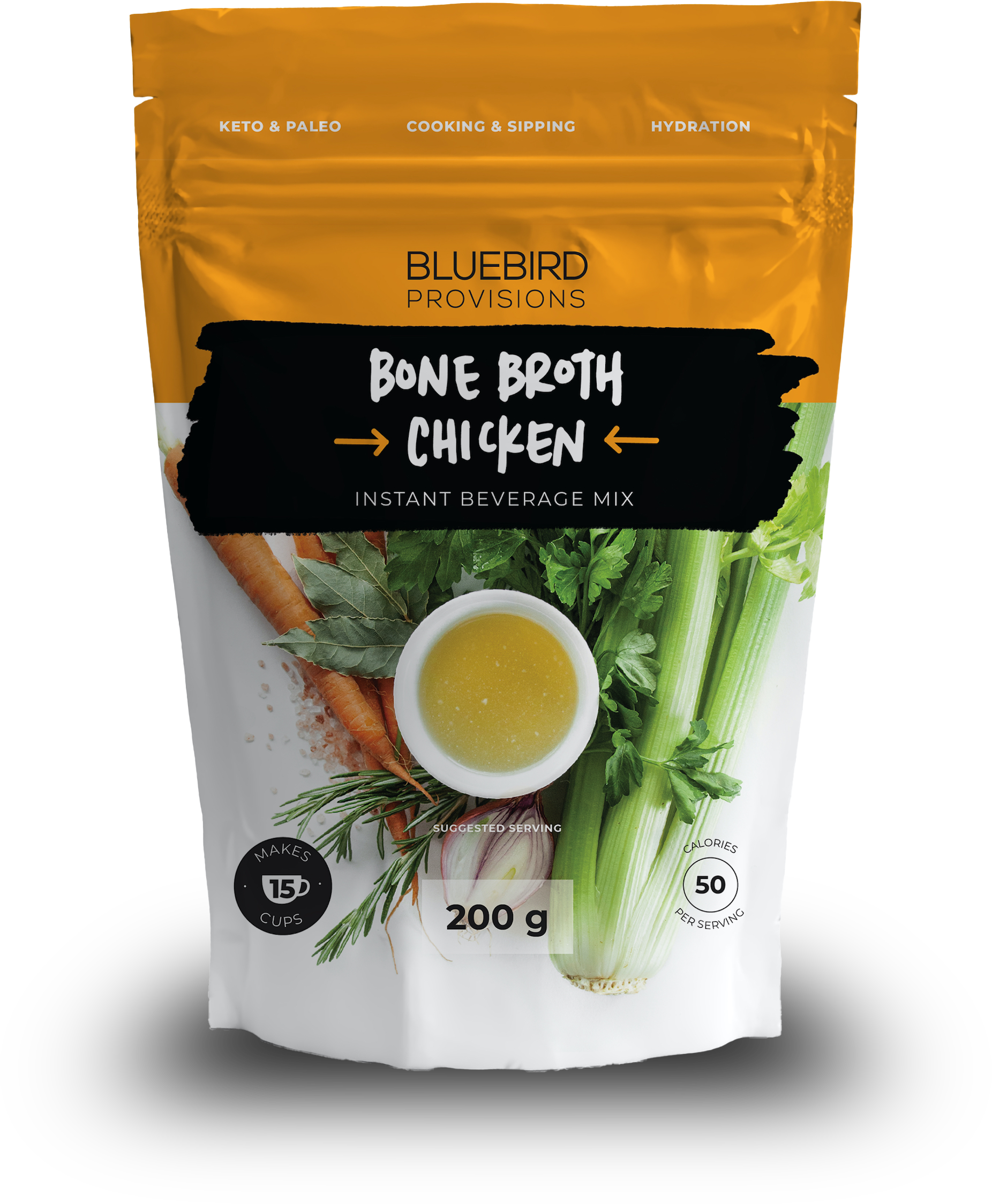
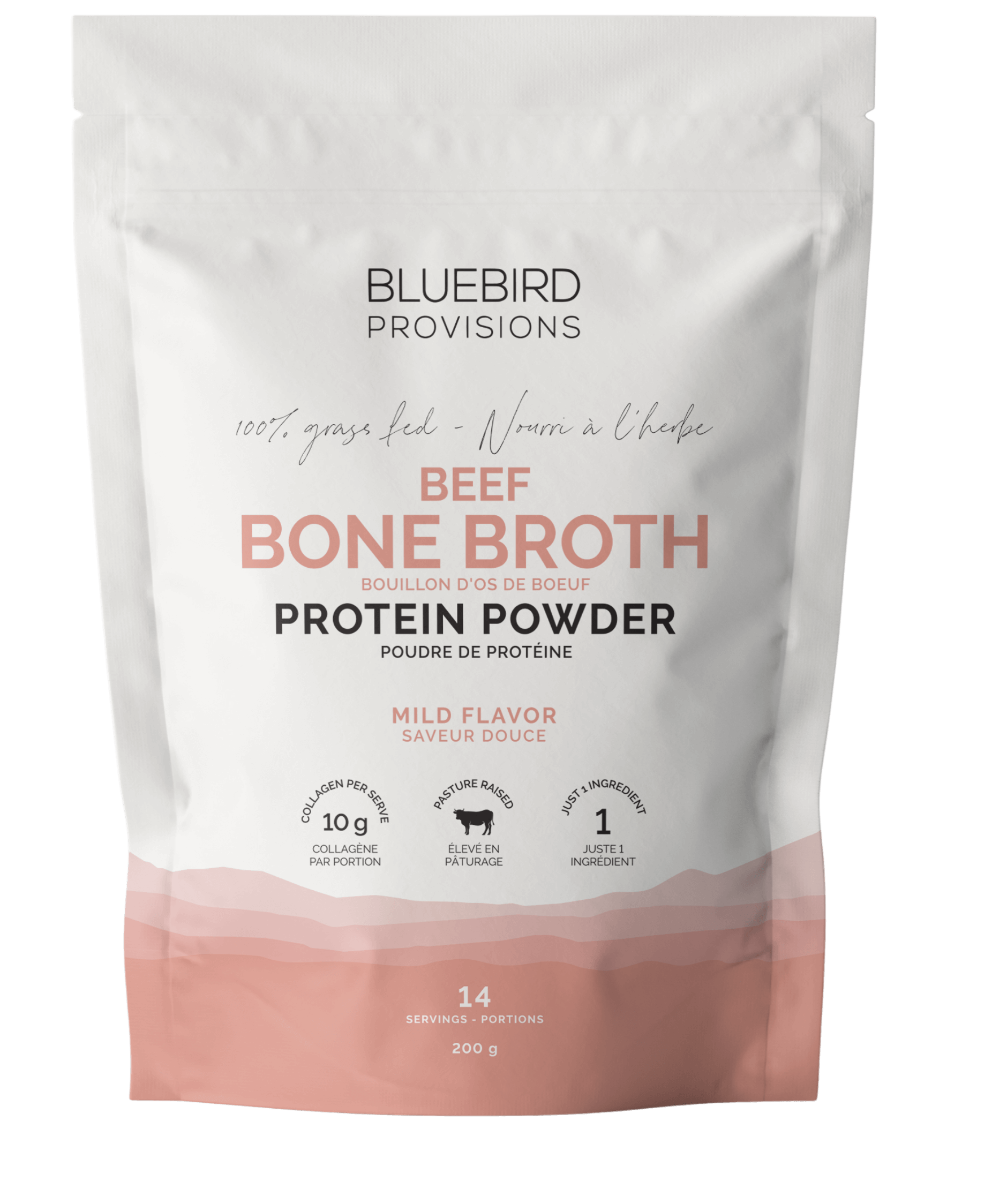
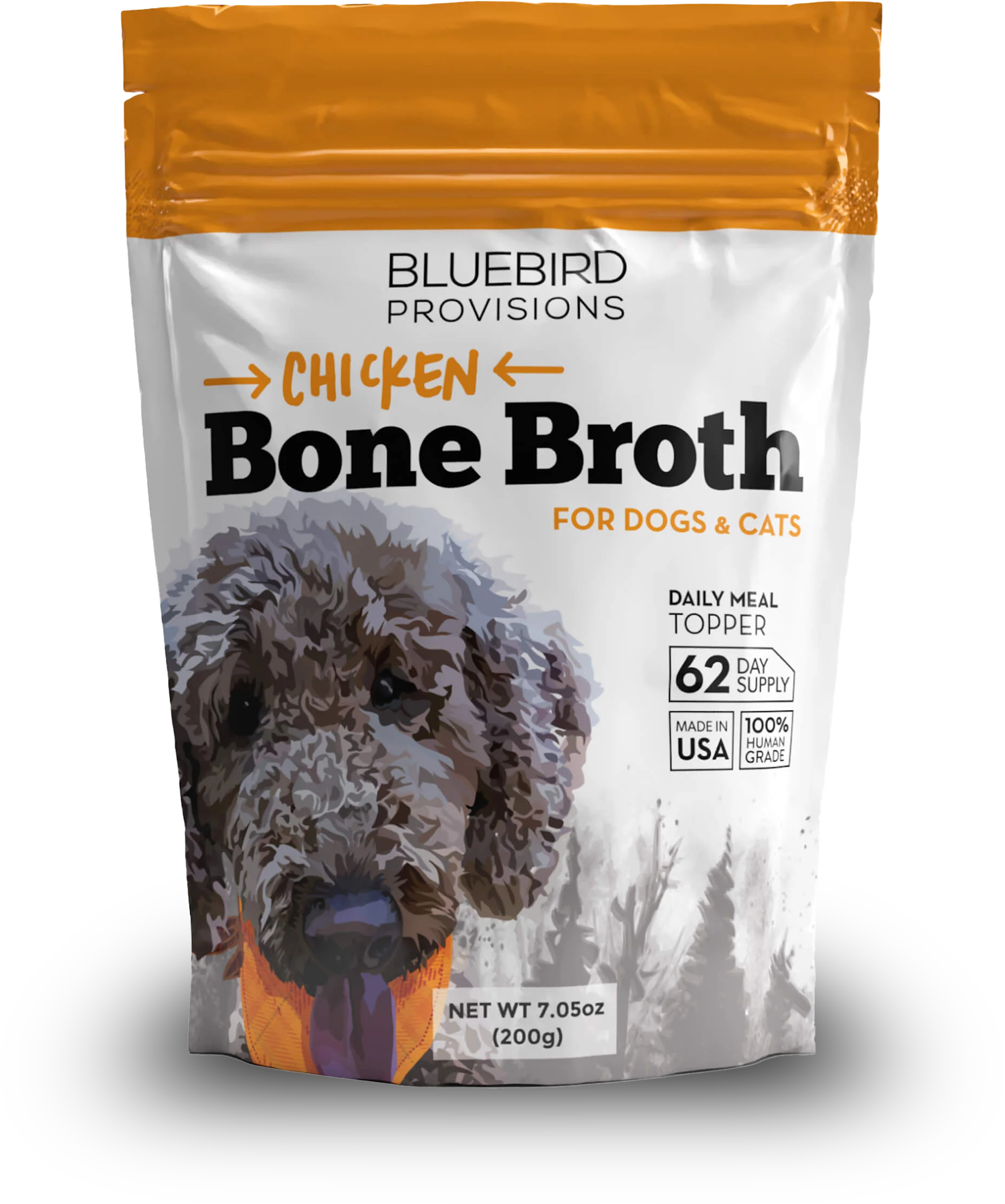
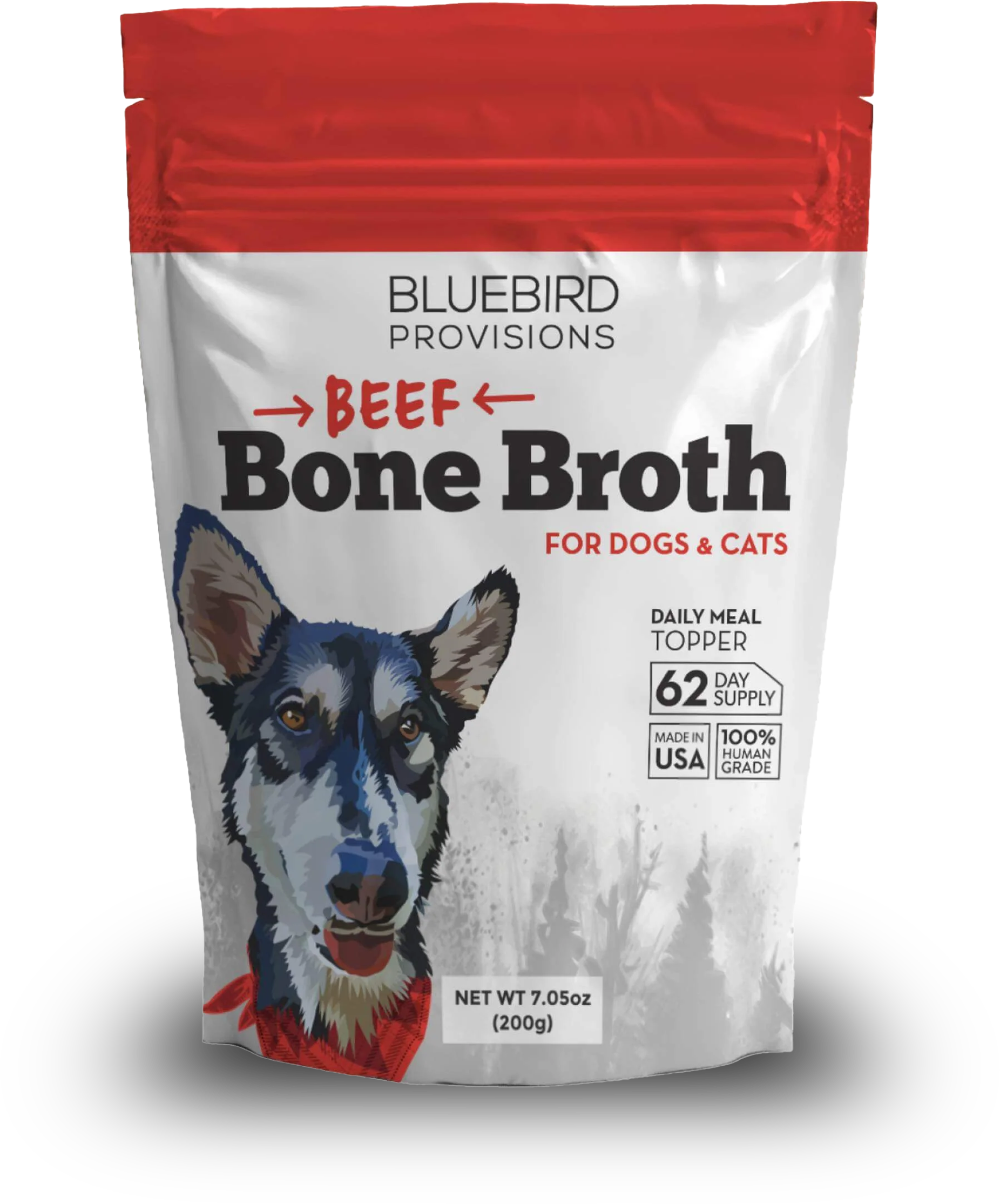
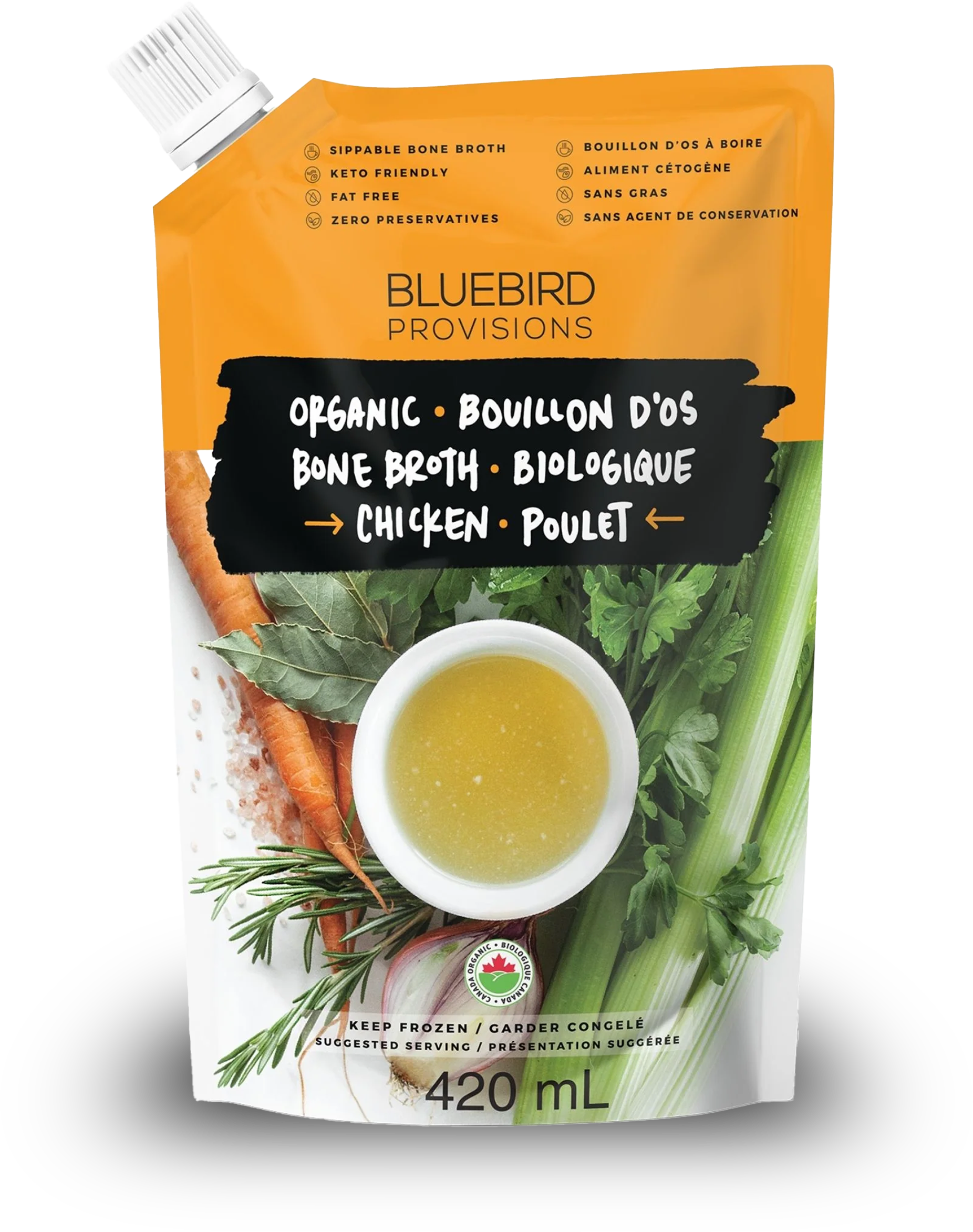
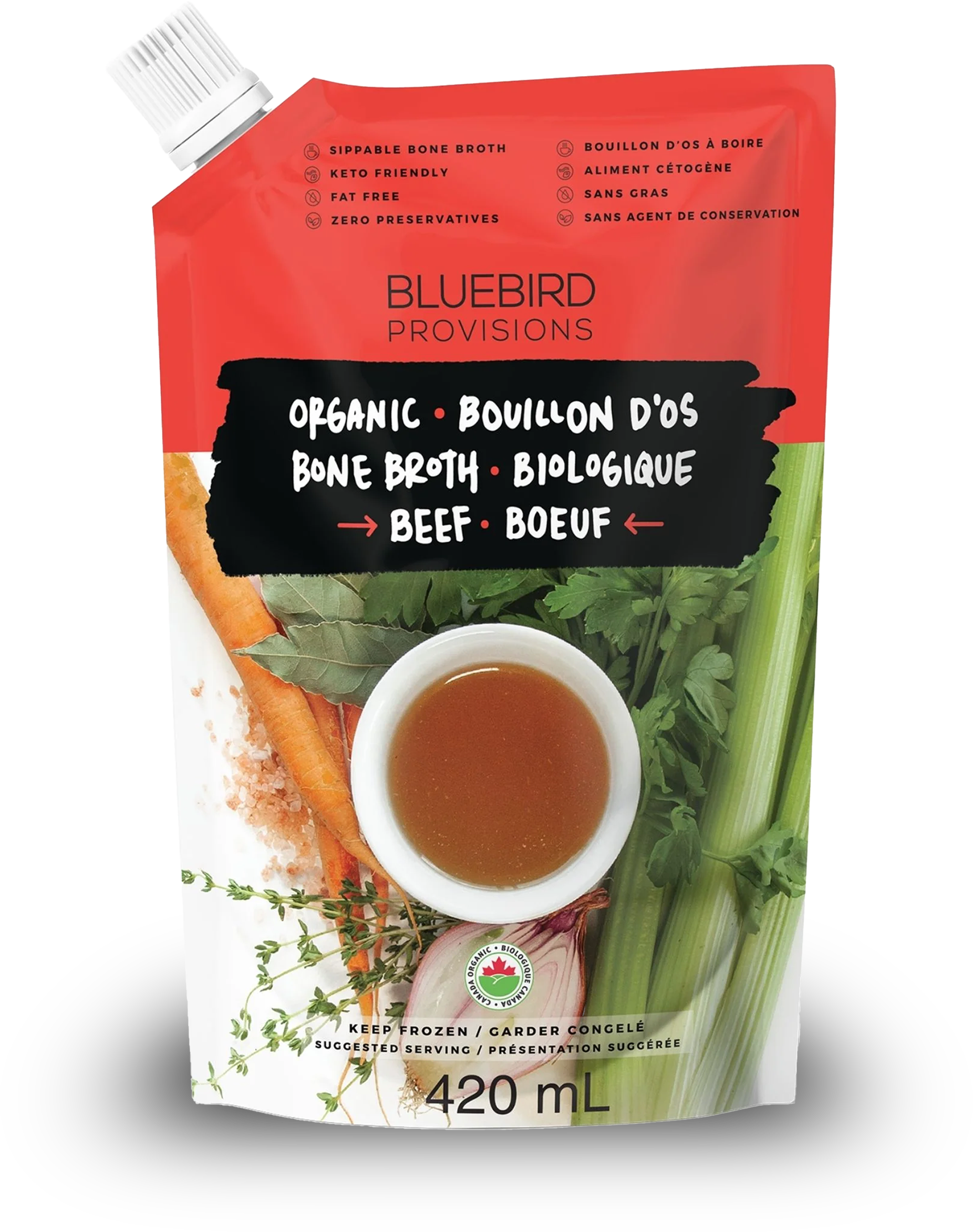

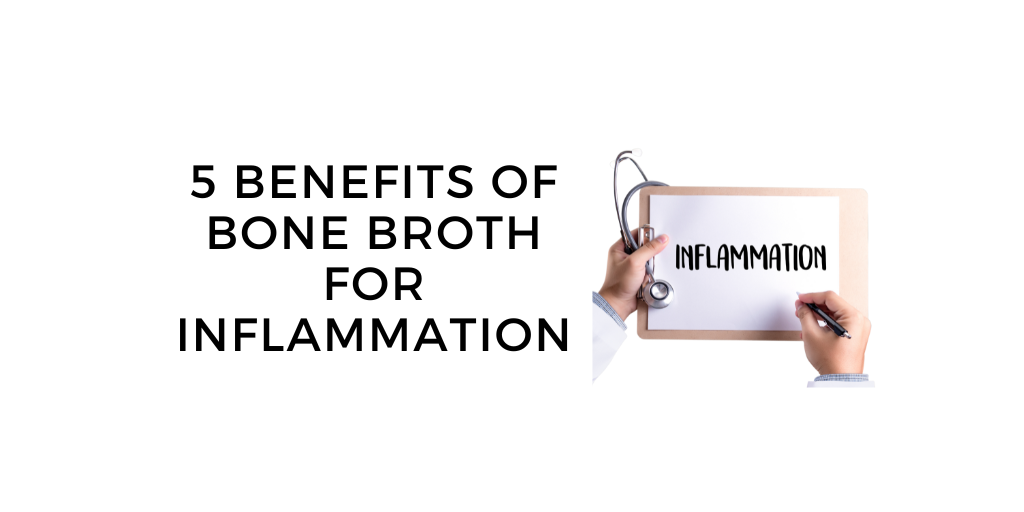

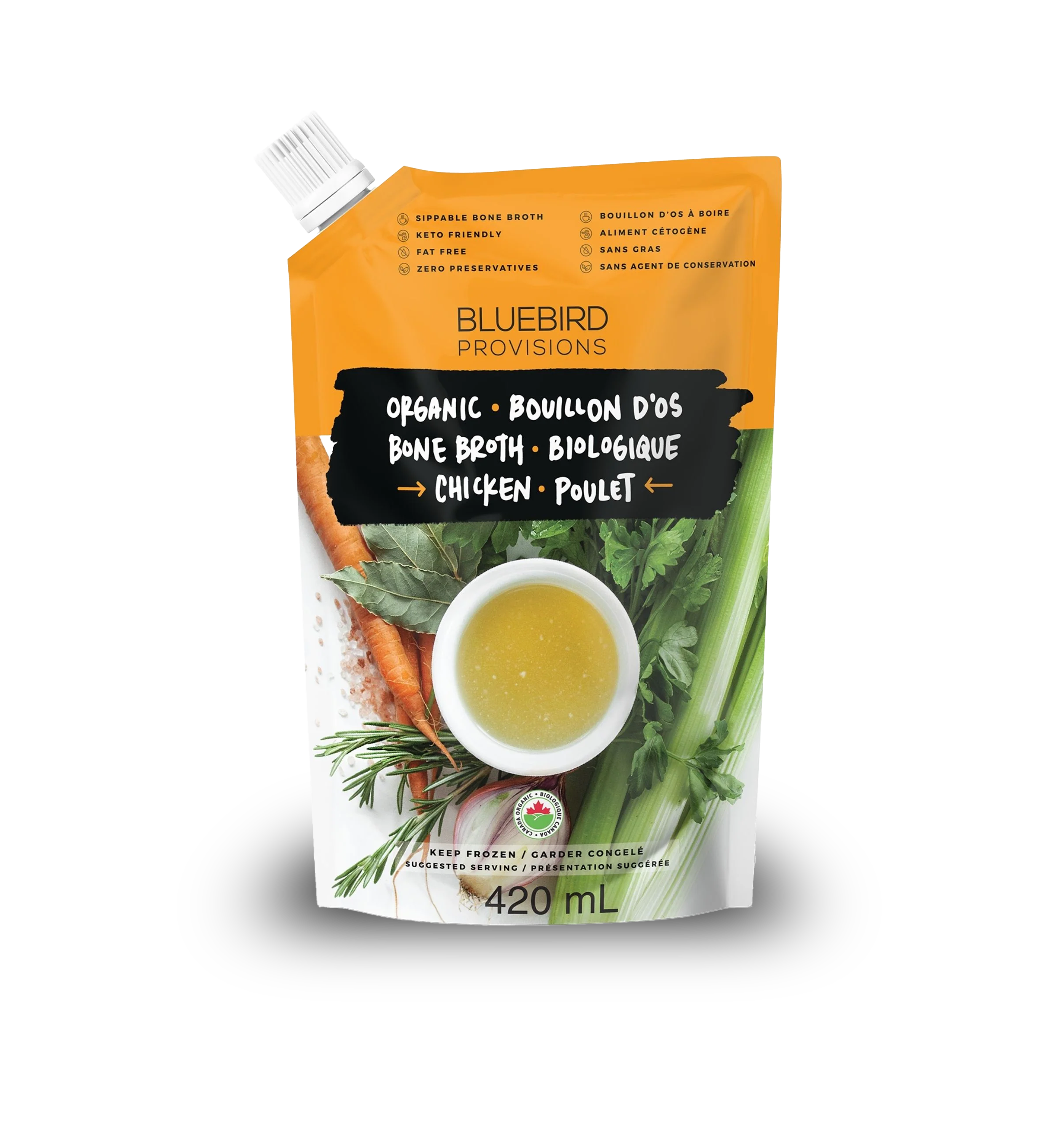
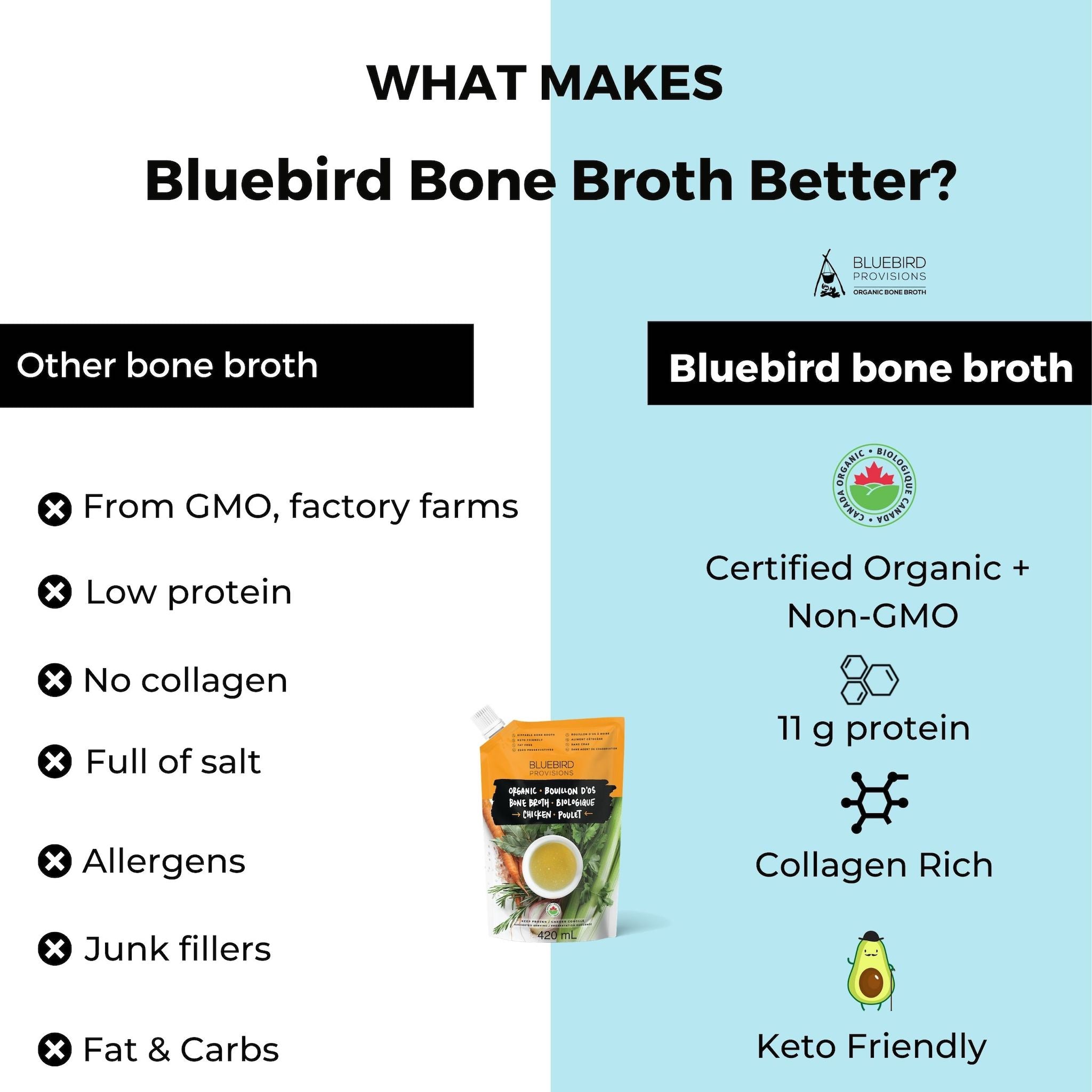
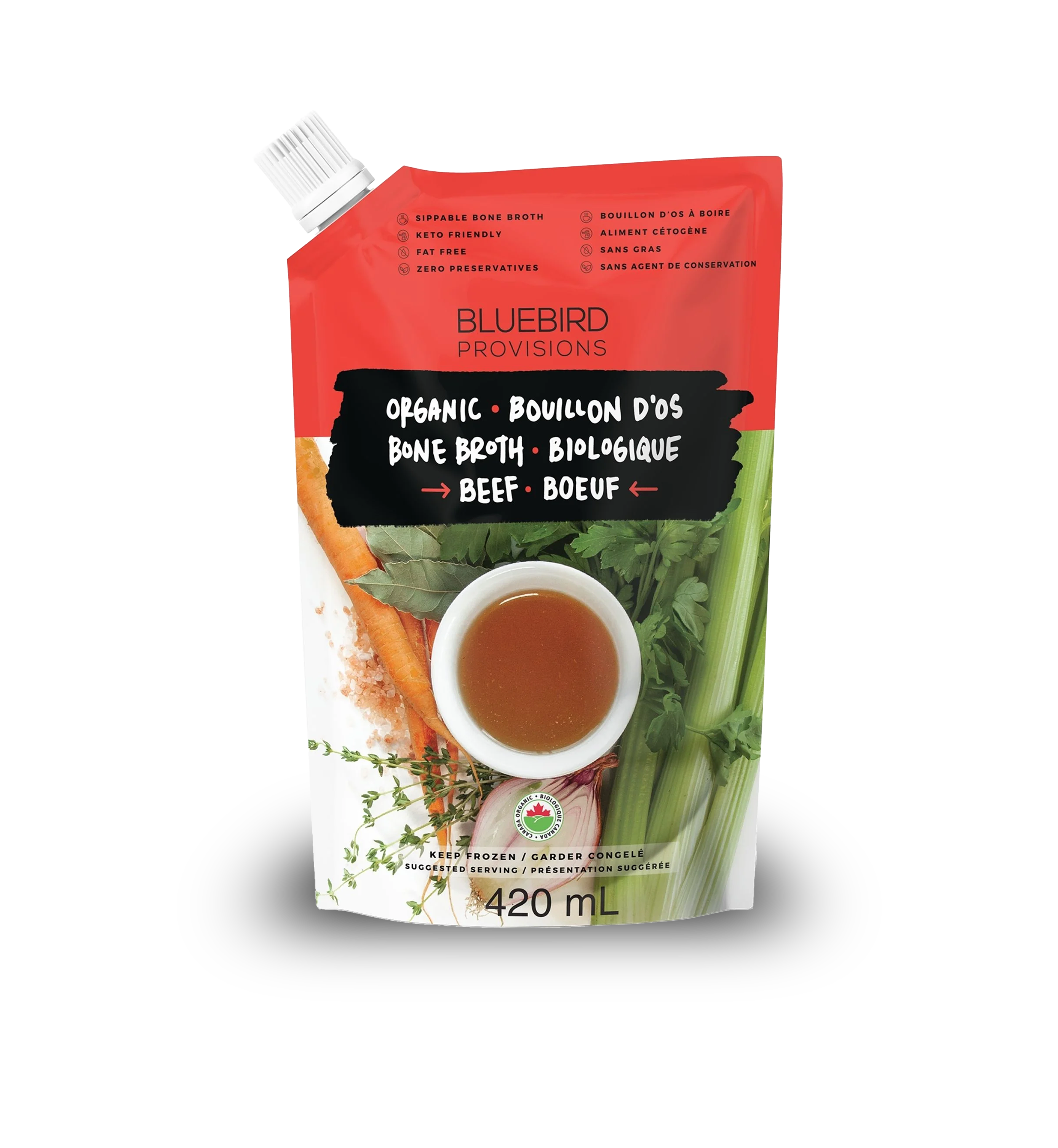
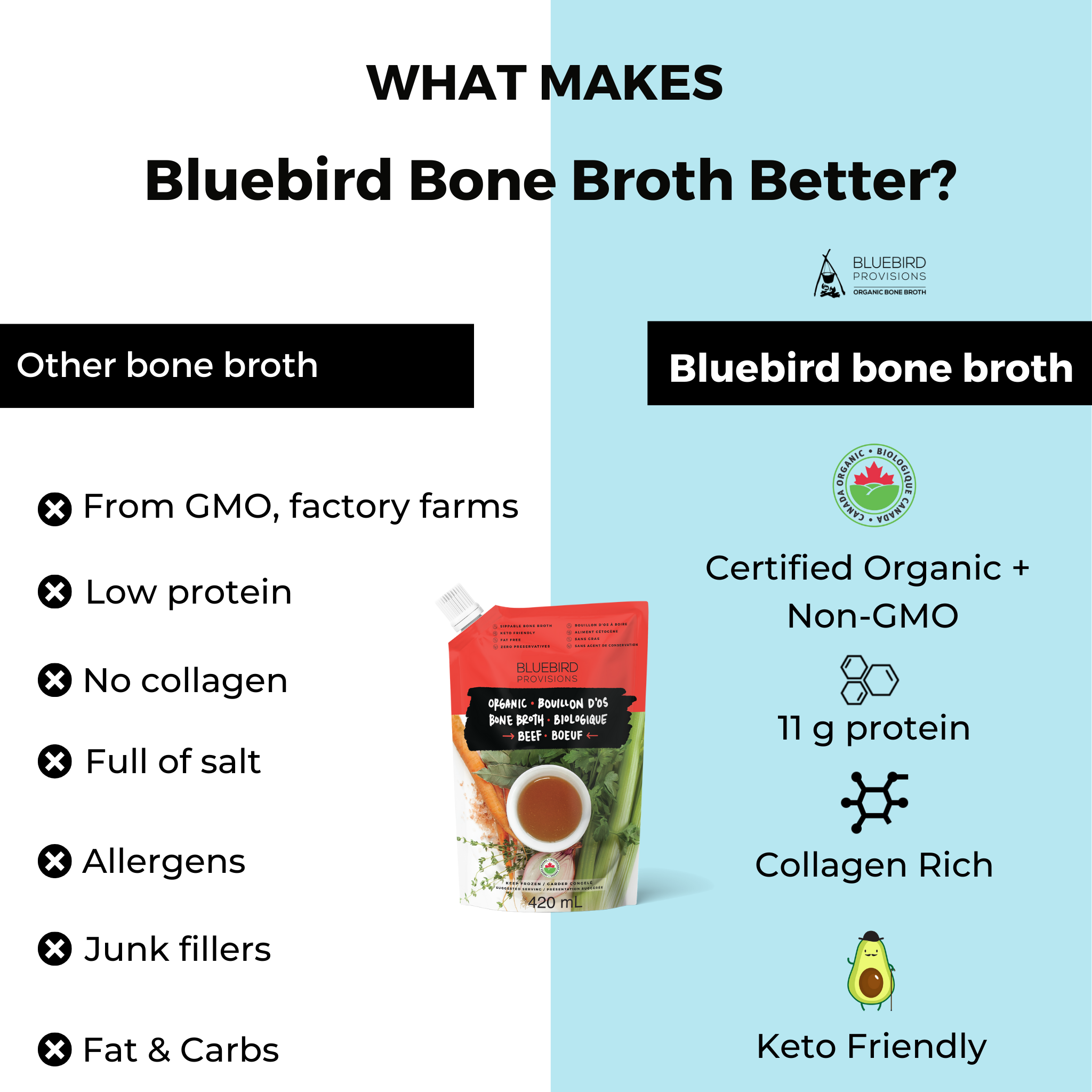
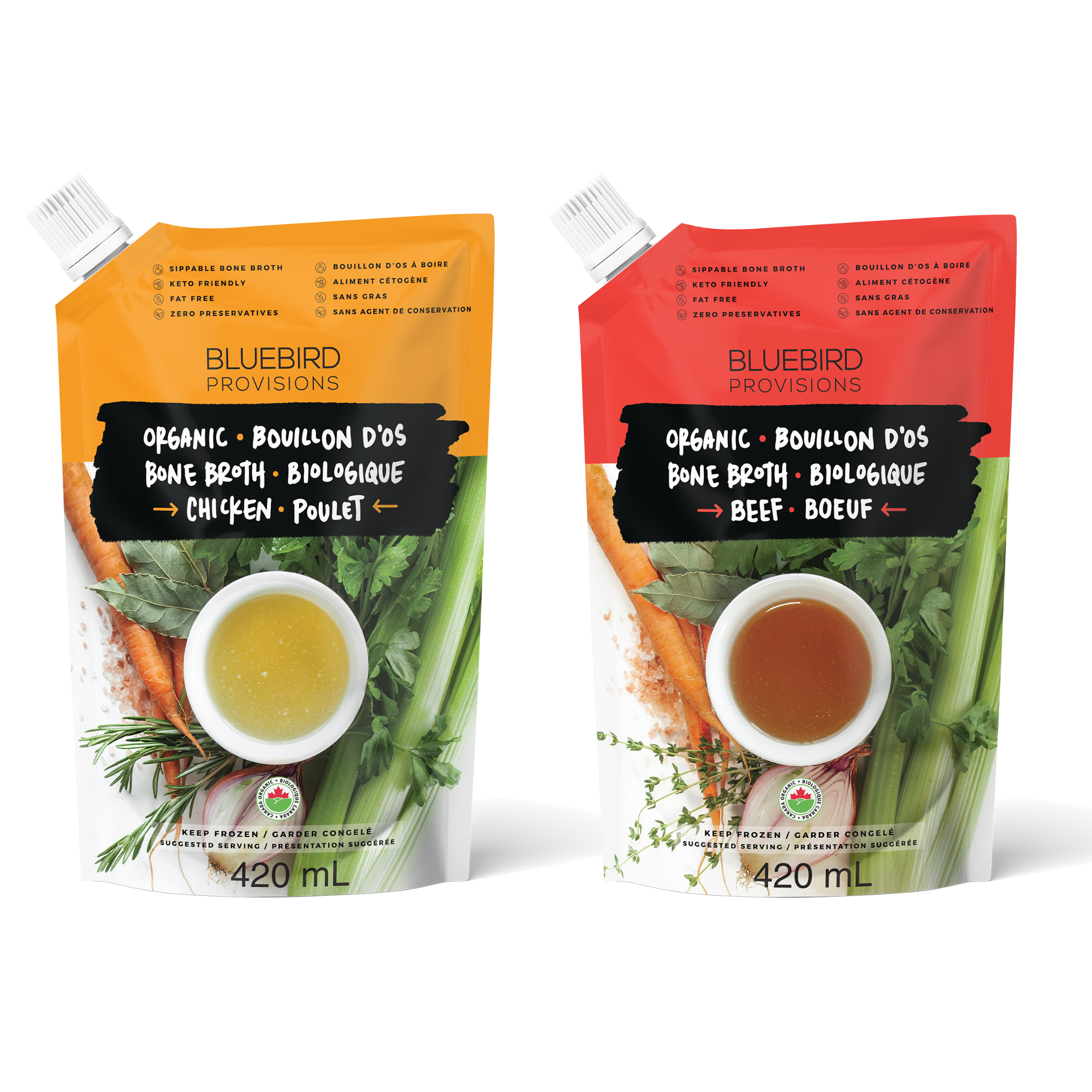

4 comments
Hi Sylvie,
You would mainly be getting type 1 and type 3 collagen from pheasants and deer. It sounds delicious!
Connor at Bluebird Provisions
Thank you Connor so much for such an informative artical.
I have a question about collagen with regards to pheasants and deer.
I have read that type 2 collagen from Chicken is good for your bones and eyes (vitreous). Apparently, beef and marine collagen are types one and four and better support healthy skin, hair and nails.
When making bone broth with pheasants and deer, what type of collagen will be present?
Thanks, Sylvie
Sylvie
Hi Doris,
Bone broth does not have much calcium. I think you’d be better to speak with a doctor to get advise on osteoporosis. sorry!
Connor at Bluebird Provisions
I have osteoporsis, is it poeeible this would improve my bones?
Doris
Leave a comment
This site is protected by hCaptcha and the hCaptcha Privacy Policy and Terms of Service apply.